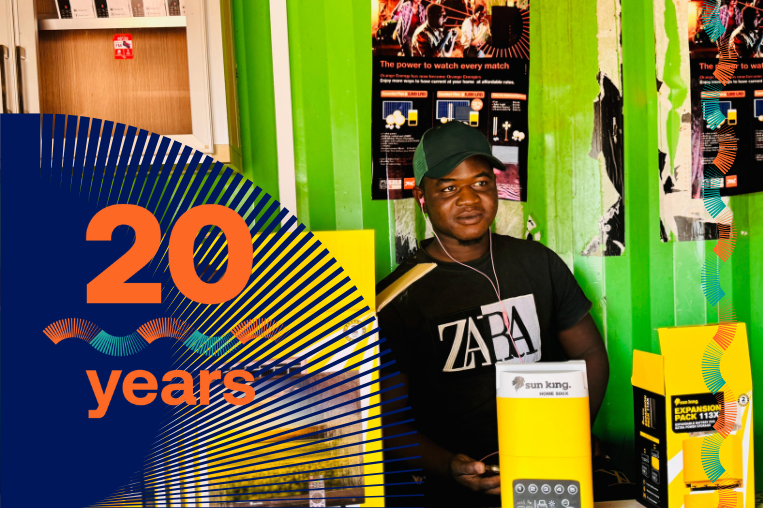What happens when organisations come together to power universal energy access? A successful collaboration between EnDev, the World Bank, and the Government of Liberia has discovered that the answer is three-fold. Firstly, energy access increases for low-income, vulnerable communities through off-grid solar home systems; secondly, a model is created to boost the nascent solar market in Liberia and facilitate scale-up; and finally, contributions are made to global learning and knowledge-sharing for future replication at scale. But why is such a collaborative approach needed?
Tackling energy poverty
As evening draws in, families across Liberia turn on their flashlights. Children gather round the table to do their homework while their parents cook, tackle household chores, or try to finish their day’s work – all while using small, unreliable, low-quality light.
In Liberia, only 18% of the population is connected to the national grid, while another 14% rely on off-grid solutions. Electricity is inaccessible for most households in the country due to an underdeveloped national grid and the prohibitive cost of solar-powered systems during national economic hardship. The road to universal energy access in Liberia is complex, and despite strong government commitment, progress has been hampered. Since the COVID-19 pandemic and subsequent global economic crises, the country has struggled to recover. But what can be done when promising energy solutions fail to reach those who need them most?
Recognising the urgent need for change, EnDev launched the demand-side subsidies project in Liberia in 2022. At this time, the emerging home solar system market in Liberia was already struggling: many households could no longer afford repayments on their solar products, causing some suppliers to collapse. Yet, unfolding amidst these challenges is a powerful example of what is possible through strategic collaboration.
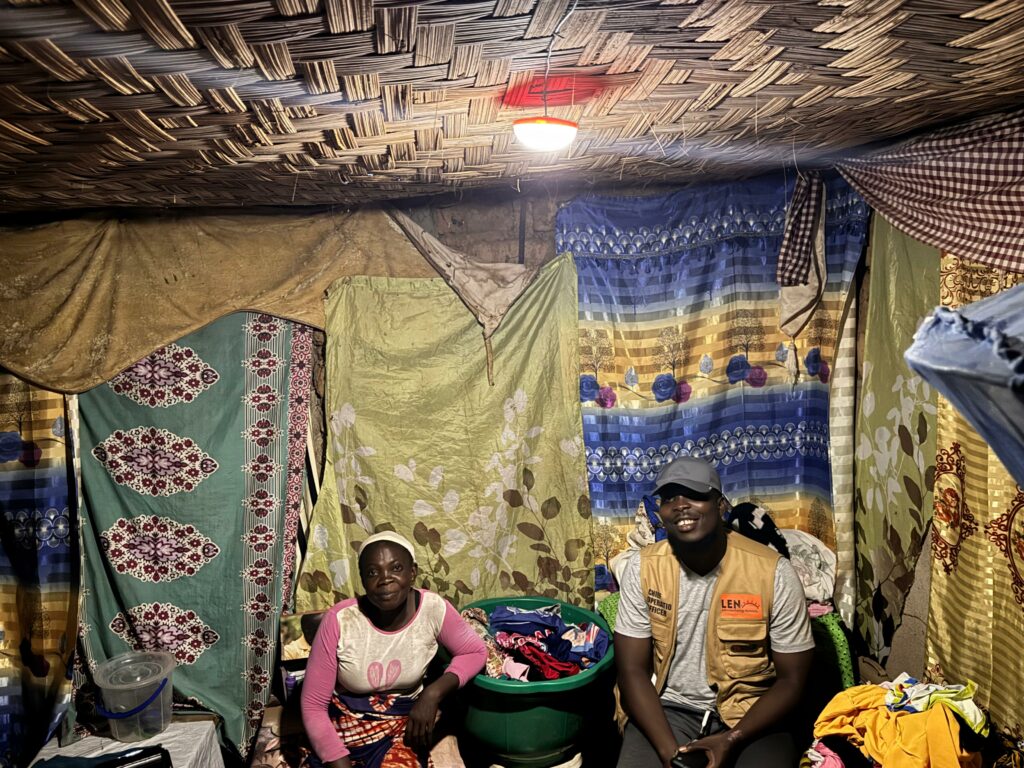
Leveraging complementary expertise and funding
In Liberia, the EnDev pilot provides demand-side subsidies to households. It is embedded within the wider Liberia Solar Home System Result-based Financing Programme, a unique collaborative initiative between EnDev and the Liberia Electricity Sector Strengthening and Access Project. This World Bank- funded project provides supply-side subsidies to companies and is implemented by the Government of Liberia through the Rural and Renewable Energy Agency (RREA).
Both the demand-side and supply-side initiatives were being designed at the same time. The EnDev and Work Bank teams noticed the advantages of collaboration and decided to work together. Jointly, they build RREA’s capacities and leverage EnDev’s extensive knowledge of results-based financing (RBF) to help mobilise supply-side subsidies.
This initiative marks the first time EnDev is working in such close partnership with the World Bank. It is proving that electrification can scale even in the most fragile markets when partners work together, aiming to directly provide modern energy access to 33,000 people and unlock pathways to reach millions more through scale-up and replication.
Results-based financing (RBF)
Under a RBF agreement, a funder like EnDev releases funds to a partner when certain agreed-upon results are reached and independently verified. This may, for example, be a specified number of people gaining access to a technology. The partner doing the work decides how best to get the results and unlock the funding. EnDev has successfully used RBFs in many countries since 2013.
Demand-side subsidies (DSS)
DSS overcome the barrier of affordability by directly reducing the consumer price of energy products for target beneficiaries., enabling access to marginalised groups, such as households with extremely low-income – ensuring that no one is left behind. However, to avoid market distortion and preserve long-term sustainability, such subsidies must be carefully designed.
EnDev’s global DSS component is co-financed by DGIS and includes four countries: Liberia, Malawi, Niger, and Uganda
Demand-side and supply-side support coming together
EnDev provides the end user subsidies to lower the cost of solar home systems for households. This, however, came with some unexpected challenges. Limited socio-economic data meant targeting had to rely on district-level poverty data. Initially set at 20% of the market price (capped at $40 per product), the subsidy proved insufficient for many households. In response to feedback from companies and insights from an affordability study, EnDev doubled the subsidy and expanded its reach from two to seven target counties. The higher subsidy level makes products more affordable for beneficiaries, and with more potential customers, a more attractive market for companies. In May 2025, EnDev was able to contract 14 companies under the results-based financing scheme.
At the same time, the World Bank, through RREA, provides supply-side subsidies for each product sold. This incentive varies depending on how hard it is to reach a given market, encouraging sales in more remote areas by helping cover their higher operational costs. The collaborative approach offers a simplified “one-stop shop” for companies. It streamlines donor processes, which makes it easier for companies to participate, and accelerates market growth. This contributes to ensure energy access for people who need it most.
Although considerable progress has been made since the initiative’s launch, Liberia’s off-grid solar sector is still in its infancy, with limited capacity among companies to implement large-scale results-based financing activities. The project primarily works with small companies, often start-ups, and EnDev and BRAC Liberia – the pilot’s fund manager – provide essential training on sales, marketing, and financial and business management. Ongoing capacity-building and one-on-one coaching are critical to help these businesses grow and expand into the target regions.
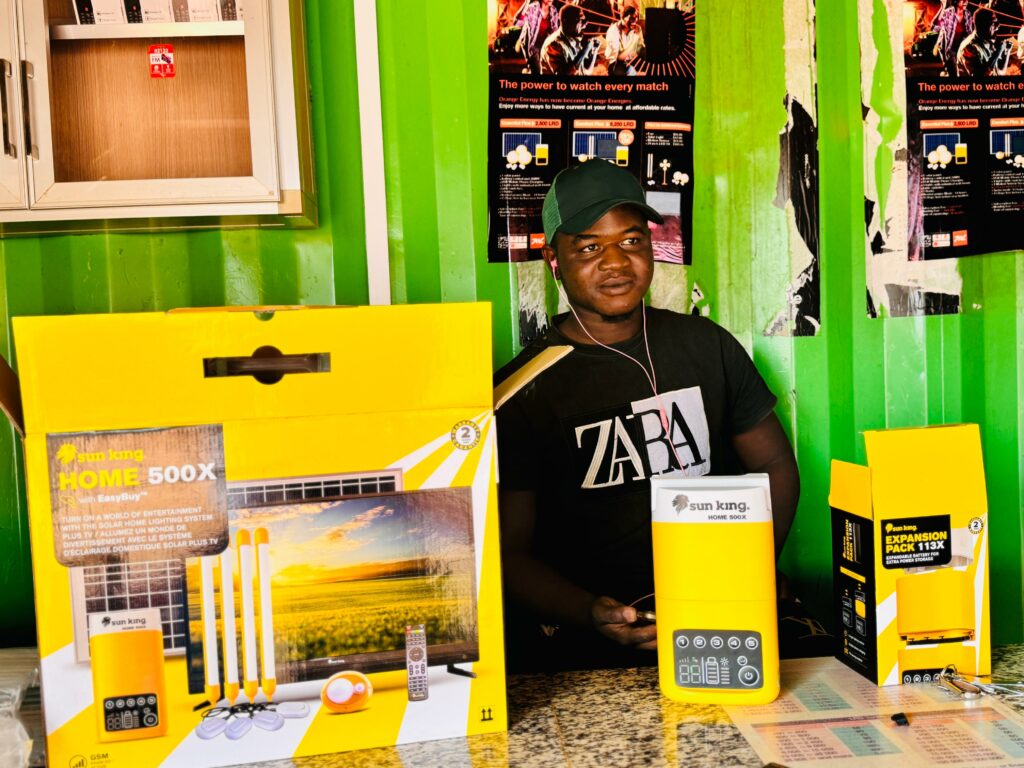
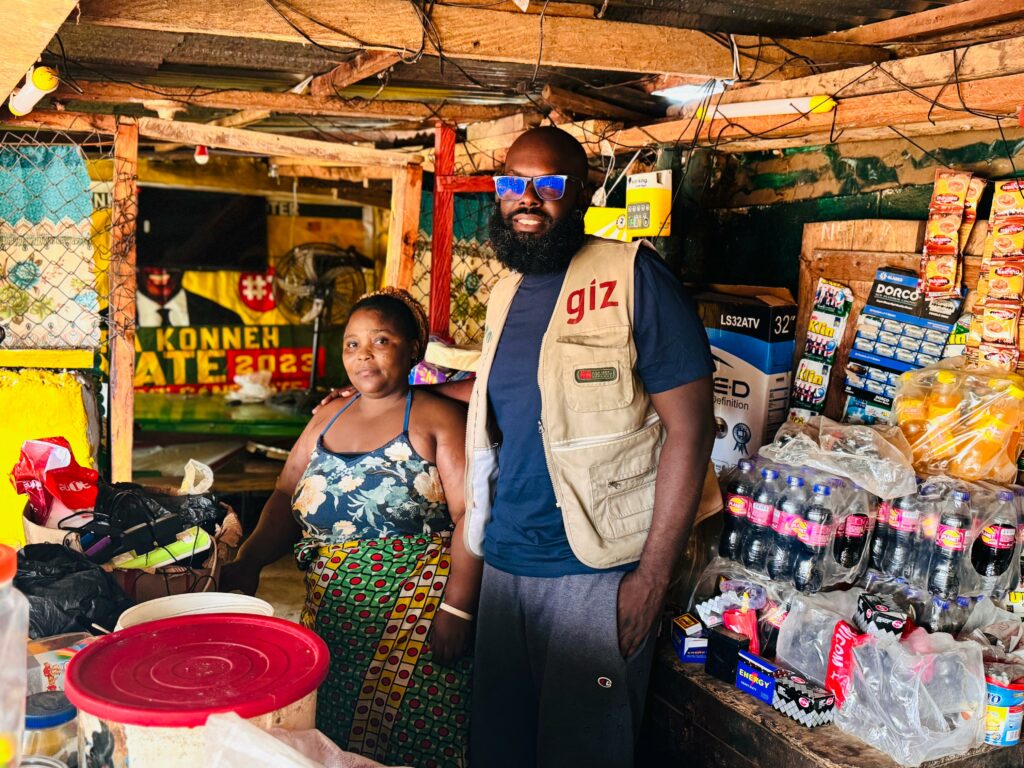
As a pioneer in implementing the demand-side subsidy, EnDev complemented the World Bank’s supply-side support, creating a holistic and impactful RBF mechanism. Beyond financial structuring, EnDev brought deep technical expertise, built critical client capacity, and provided unwavering support that helped drive the RBF forward. We look forward to continuing this strong partnership, scaling up the RBF model to expand energy access and drive sustainable development in Liberia.
- Ms. Rida Rizvi, Energy Specialist, West and Central Africa, World Bank
Partnering for success
Why is collaboration so important? By bringing together multiple partners, the initiative is more than just the beginning of a success story, it is a blueprint that shows how collaboration, aligned funding, and flexible programme design can light the way for electrification, even in the most challenging situations.
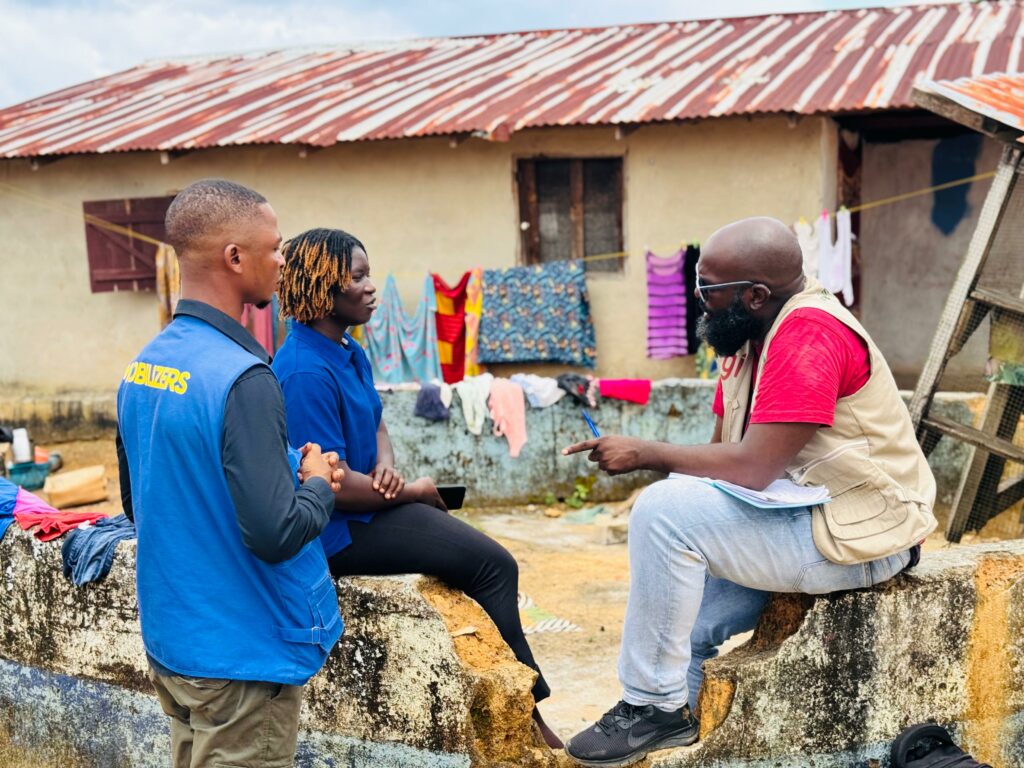
As the project evolves, EnDev is committed to capturing lessons from Liberia and sharing them globally. These insights will help shape future results-based financing and household subsidies approaches. For example, the World Bank’s results-based financing projects in other countries. Furthermore, the experience of the partnership will contribute to a growing body of knowledge on how to accelerate energy access through well-coordinated, strategic action.
Together, EnDev, the World Bank, and the Government of Liberia are helping deliver affordable, reliable, and sustainable modern energy access for low-income households – so families can live, work, and thrive together even after the sun goes down – and laying the foundation for a resilient home solar market in Liberia
Key take-aways
Leverage partnerships and funding
Collaborating with partners means leveraging lessons and skills from other organisations and harnessing multiple sources of funding.
Design for flexibility
Ensure there is flexibility in the project design – like adjusting subsidy levels – to adapt when new data and feedback become available.
Balance supply and demand support
Supply-side subsidies alone are not enough to target low-income households; there should also be a demand-side support mechanism.
Subsidise remote access fairly
Consider proportional supply-side subsidies to ensure suppliers reach remote customers and are fairly compensated for the additional overheads.
